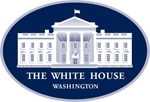WASHINGTON — A five-member Presidential Emergency Board was appointed by President Obama Oct. 6 to investigate and make non-binding recommendations in a dispute between 11 rail labor unions and the National Carriers’ Conference Committee, which represents BNSF, CSX, Kansas City Southern, Norfolk Southern, Soo Line, Union Pacific and numerous smaller railroads.
Neither the carriers nor any of the 11 unions may engage in self-help at least until Dec. 7 as a result of the PEB’s creation.
The UTU is not affected by creation of the PEB as it reached – and ratified – a new five-year agreement with the NCCC covering conductors, yardmen, brakemen, engineers (where UTU represents engineers), firemen/hostlers and yardmasters this past summer.
The other unions, unable to reach a voluntary settlement with the NCCC since talks began in January 2010, were released from mediation Sept. 6 by the National Mediation Board, which resulted – under provisions of the Railway Labor Act – in a 30-day cooling off period while President Obama considered appointing a PEB.
Creation of PEB No. 243 now begins a second 30-day cooling off period while the PEB commences its fact-finding investigation and makes non-binding recommendations no later than Nov. 6.
At that point, a third and final 30-day cooling off period will commence — and end Dec. 6 — while the two sides consider the PEB recommendations and seek a voluntary settlement based on those recommendations.
If no settlement occurs, the Railway Labor Act has run its course and the parties are free to engage in self-help – a work stoppage by labor, a lockout by one or more of the carriers, or unilateral promulgation of carrier Section 6 notices.
At that point, Congress typically enters the fray and issues a back-to-work order, effectively imposing a third-party settlement on the involved carriers and their unions.
The 11 unions affected by the Obama-created PEB have been negotiating in two separate coalitions:
One coalition includes the Transportation Communications Union, the American Train Dispatchers Association, the International Association of Machinists, the International Brotherhood of Electrical Workers, and the Transport Workers Union.
A second coalition still negotiating with the NCCC includes the Brotherhood of Locomotive Engineers and Trainmen, the Brotherhood of Maintenance of Way Employes, the Brotherhood of Railroad Signalmen, the Brotherhood of Boilermakers and Blacksmiths, the National Conference of Firemen and Oilers, and the Sheet Metal Workers International Association.
The members of the PEB No. 243 are: Ira F. Jaffe, chair; Roberta Golick; Joshua Javits; Gil Vernon; and Arnold Zack.
Their biographies, as provided by the White House, follow:
Ira F. Jaffe has been an arbitrator and mediator of labor and employment disputes since 1981 and has presided over more than 4,000 cases in a wide variety of industries in the private and public sectors. Mr. Jaffe serves on over 60 permanent arbitration panels and has served on three separate PEBs, one in 2001 and two in 2007. Mr. Jaffe is also a Vice-President of the National Academy of Arbitrators (NAA) and has been a frequent contributor at the NAA Meetings and at other professional conferences. Mr. Jaffe served as the National President of the Society of Federal Labor Relations Professionals in 1990. As an Adjunct Professor at the George Washington University Law School in the 1980s, Mr. Jaffe taught courses in labor law, collective bargaining and labor arbitration, and agency and partnership. He is a Charter Fellow in the American College of Employee Benefits Counsel and has arbitrated and mediated a wide variety of employee benefits disputes. He is also a Fellow in the College of Labor and Employment Lawyers. Mr. Jaffe is a graduate of the Cornell University School of Industrial and Labor Relations and of the George Washington University Law School.
Roberta Golick is President of the National Academy of Arbitrators, one of the leading North American organizations of neutral arbitrators of labor-management and employment disputes. With more than 35 years’ experience in the profession, Ms. Golick has handled thousands of cases in both the private and public sectors during the course of her career. Ms. Golick was the 1996 recipient of the Cushing-Gavin Award, given annually by the Boston Labor Guild to a single neutral each year for “Excellence in Labor-Relations, Exemplifying Moral Integrity, Professional Competence and Community Concern.” She received her B.A. from Barnard College, Columbia University and her J.D. from Boston University School of Law.
Joshua M. Javits is a neutral mediator and arbitrator and serves on numerous permanent arbitration panels. He served on a Presidential Emergency Board in 2007. From 1993 to 2001, Mr. Javits was a Partner at Ford & Harrison LLP where he also served as executive director of the Labor Relations Association of Passenger Railroads. He was also an adjunct professor at the Georgetown University Law Center where he taught courses in labor arbitration, transportation labor law, and alternative dispute resolution. He was Chairman and Member of the National Mediation Board from 1988 to 1993. He began his career as a trial attorney with the National Labor Relations Board. Mr. Javits has represented both labor unions and management, at different times, and is on the rosters of the American Arbitration Association, the Federal Mediation and Conciliation Service, and the National Mediation Board. He has been rated “AV” – the highest rating – by Martindale Hubbell’s “Best Lawyers in America” since 2001. Mr. Javits is a graduate of Yale College and Georgetown University Law Center.
Gil Vernon has been engaged in the practice of labor arbitration and dispute resolution since 1979. From 1979 to 1983, he was also an instructor in the Department of Business Administration of the University of Wisconsin, Eau Claire, teaching labor relations, labor law, personnel, compensation administration and management. Prior to that, Mr. Vernon was a carrier member of the National Railroad Adjustment Board in Chicago, Illinois. Previously, he was a Labor Relations Officer, and before that a Crew Dispatcher and union member, for the Chicago, Milwaukee, St. Paul and Pacific Railroad in Chicago. He was appointed to a Presidential Emergency Board in 1996. Mr. Vernon is the immediate past President of the National Academy of Arbitrators. He is on the Major League Baseball Salary Arbitration panel, the National Railroad Adjustment Board, and more than 15 airline arbitration panels, among others. He previously served on seven multi-year railroad arbitration panels as well as the Protective Benefits Panel of the Railroad Retirement Board. Mr. Vernon received his B.A. from Hope College and his M.A. from the University of Chicago.
Arnold M. Zack has been an arbitrator and mediator of over 5,000 labor disputes since 1957 and a Member of four Presidential Emergency Boards, serving as Chair twice. He is currently the President and Chief Judge of the Asian Development Bank Administrative Tribunal. Mr. Zack was the President of the National Academy of Arbitrators from 1994 to 1995. From 1990 to 2000 he was the Chair of the Essential Industries Dispute Settlement Board in Bermuda, and the Chair of the Essential Services Dispute Settlement Board there from 1998 to 2001. Mr. Zack has also served and taught as a senior research associate at the Labor and Worklife Program at Harvard Law School since 1985. He was a Fulbright Scholar, a Wortheim fellow, and is a member of the College of Labor and Employment Lawyers. Among his awards is the Distinguished Service Award of the American Arbitration Association and the Pioneer Award and Willoughby Abner Award of the Association on Conflict Resolution. Mr. Zack holds degrees from Tufts University, Yale Law School and Harvard University’s Kennedy School of Government.
Following is the White House executive order appointing the PEB:
THE WHITE HOUSE
Office of the Press Secretary
For Immediate Release October 6, 2011
EXECUTIVE ORDER
– – – – – – –
ESTABLISHING AN EMERGENCY BOARD TO INVESTIGATE DISPUTES
BETWEEN CERTAIN RAILROADS REPRESENTED BY THE NATIONAL CARRIERS’
CONFERENCE COMMITTEE OF THE NATIONAL RAILWAY LABOR CONFERENCE
AND THEIR EMPLOYEES REPRESENTED BY CERTAIN LABOR ORGANIZATIONS
Disputes exist between certain railroads represented by the
National Carriers’ Conference Committee of the National Railway
Labor Conference and their employees represented by certain
labor organizations. The railroads and labor organizations
involved in these disputes are designated on the attached list,
which is made part of this order.
The disputes have not heretofore been adjusted under
the provisions of the Railway Labor Act, as amended, 45 U.S.C.
151-188 (RLA).
I have been notified by the National Mediation Board that
in its judgment these disputes threaten substantially to
interrupt interstate commerce to a degree that would deprive a
section of the country of essential transportation service.
NOW, THEREFORE, by the authority vested in me as President
by the Constitution and the laws of the United States, including
section 10 of the RLA (45 U.S.C. 160), it is hereby ordered as
follows:
Section 1. Establishment of Emergency Board (Board).
There is established, effective 12:01 a.m. eastern daylight time
on October 7, 2011, a Board composed of a chair and four other
members, all five of whom shall be appointed by the President to
investigate and report on these disputes. No member shall be
pecuniarily or otherwise interested in any organization of
railroad employees or any carrier. The Board shall perform its
functions subject to the availability of funds.
Sec. 2. Report. The Board shall report to the President
with respect to the disputes within 30 days of its creation.
Sec. 3. Maintaining Conditions. As provided by section 10
of the RLA, from the date of the creation of the Board and for
30 days after the Board has submitted its report to the
President, no change in the conditions out of which the disputes
arose shall be made by the parties to the controversy, except by
agreement of the parties.
Sec. 4. Records Maintenance. The records and files of the
Board are records of the Office of the President and upon the
Board’s termination shall be maintained in the physical custody
of the National Mediation Board.
Sec. 5. Expiration. The Board shall terminate upon the
submission of the report provided for in section 2 of this
order.
BARACK OBAMA
THE WHITE HOUSE,
October 6, 2011.
RAILROADS
Union Pacific Railroad Company
BNSF Railway Company
CSX Transportation, Inc.
Norfolk Southern Railway Company
The Kansas City Southern Railway Company
Alton & Southern Railway Company
The Belt Railway Company of Chicago
Brownsville and Matamoros Bridge Company
Central California Traction Company
Columbia & Cowlitz Railway Company
Consolidated Rail Corporation
Gary Railway Company
Indiana Harbor Belt Railroad Company
Kansas City Terminal Railway Company
Longview Switching Company
Los Angeles Junction Railway Company
Manufacturers Railway Company
New Orleans Public Belt Railroad
Norfolk & Portsmouth Belt Line Railroad Company
Northeast Illinois Regional Commuter Railroad Corporation
Oakland Terminal Railway
Port Terminal Railroad Association
Portland Terminal Railroad Company
Soo Line Railroad Company (Canadian Pacific)
South Carolina Public Railways
Terminal Railroad Association of St. Louis
Texas City Terminal Railway Company
Union Pacific Fruit Express
Western Fruit Express Company
Wichita Terminal Association
Winston-Salem Southbound Railway Company
LABOR ORGANIZATIONS
Rail Labor Bargaining Coalition consisting of:
Brotherhood of Railroad Signalmen
Brotherhood of Locomotive Engineers and Trainmen
Brotherhood of Maintenance of Way Employes
International Brotherhood of Boilermakers, Blacksmiths,
Iron Ship Builders, Forgers and Helpers
Sheet Metal Workers’ International Association
National Conference of Firemen & Oilers
Bargaining Together:
Transportation-Communications International Union
American Train Dispatchers Association
International Association of Machinists and Aerospace
Workers
International Brotherhood of Electrical Workers
Transport Workers Union of America


 Washington, D.C. – Today (July 15, 2015), President Barack Obama signed an Executive Order creating a Presidential Emergency Board to investigate and to make recommendations for settlement of the current disputes between the New Jersey Transit Rail and the NJT Rail Labor Coalition.
Washington, D.C. – Today (July 15, 2015), President Barack Obama signed an Executive Order creating a Presidential Emergency Board to investigate and to make recommendations for settlement of the current disputes between the New Jersey Transit Rail and the NJT Rail Labor Coalition.